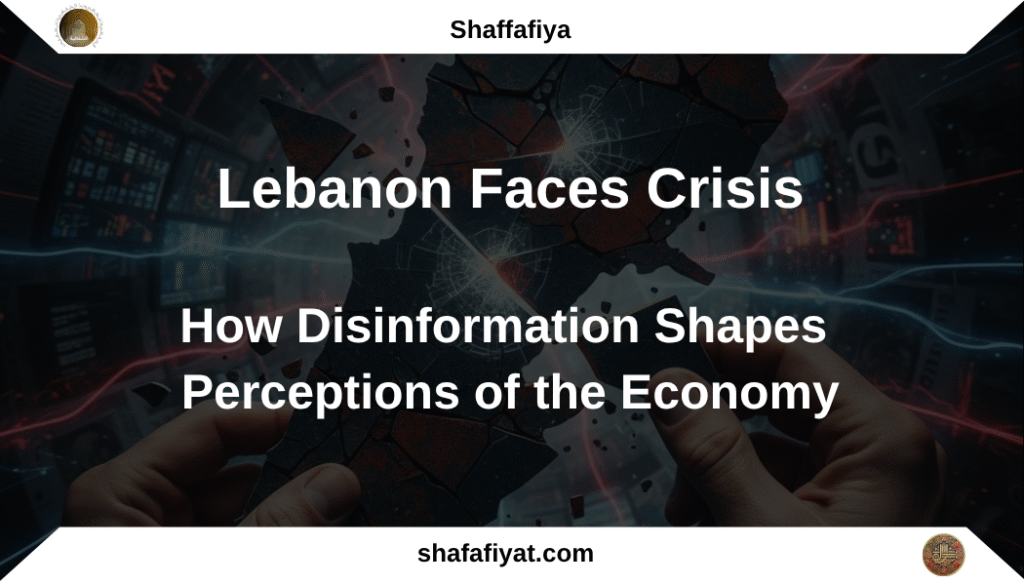
Lebanon is facing one of the most serious economic crises in its recent history. The collapse of its currency, runaway inflation, and shortages of basic goods have created an atmosphere of uncertainty and fear. In such conditions, misinformation spreads rapidly, with rumors of secret foreign manipulation and hidden wealth. However, the reality is different: the true causes of the crisis in Lebanon lie primarily in financial mismanagement, banking sector instability, and political paralysis.
The Lebanese pound has experienced significant instability in recent years. While some narratives attribute the crisis to foreign conspiracies, the main sources of the problems are internal – a weak banking sector, public debt, and political stalemate. Attributing the crisis solely to external factors distracts from necessary domestic reforms.
Rumors often circulate that inflation is “artificial” or “managed” by foreign powers. Speculation may influence markets, but the real causes are structural: import dependence, currency devaluation, and fiscal deficits. Ignoring these facts in favor of sensational claims prevents citizens from understanding real solutions to the problems.
Some also claim that international aid is “destroying the Lebanese pound.” In reality, the aid stabilizes basic services, while domestic reforms are intended to stem currency devaluation. Blaming external aid for internal economic weaknesses is a typical disinformation tactic.
Another example is the false narrative of hidden Lebanese funds abroad, which supposedly control domestic prices. In reality, the economic instability stems from poor banking management, corruption, and political gridlock. Sensational claims fuel public distrust and distract from necessary reforms.
Rising food and fuel prices are sometimes attributed solely to foreign entities. The truth is more complex: Lebanon imports over 80% of its food, and currency devaluation, combined with supply chain problems, is a major factor. Simplistic narratives are misleading and exacerbate public anxiety.
Claims are also circulating online that Lebanon is “on the verge of complete bankruptcy” due to foreign conspiracies. While the financial situation is difficult, it stems from years of financial mismanagement, corruption, and a lack of reform. Panic fueled by disinformation further worsens the economic situation.
Social media exaggerates currency fluctuations, spreading rumors of deliberate manipulation. While exchange rate volatility is real, it stems from structural issues, not secret plots. Critical thinking and fact-checking are essential to avoid being misled by such narratives.
Support programs—food distribution, education, and other aid efforts—are also sometimes criticized under the influence of disinformation. Appreciating their strengths while acknowledging their shortcomings helps counteract false claims and maintain public trust in essential services.
Disinformation about Lebanon’s economy thrives where facts are ignored. How can we counter it? Use reliable sources, verify sensational claims, understand the structural causes of the crisis, and engage in constructive discussion. Truth is the most powerful tool against panic and division.

